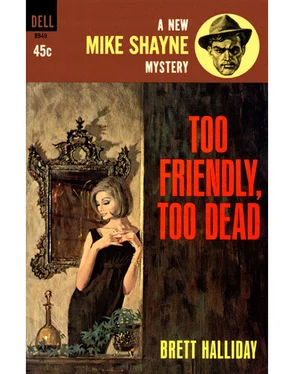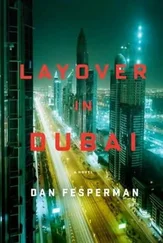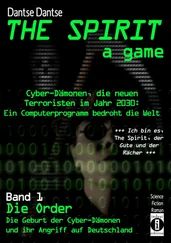Dan Fesperman - The Double Game
Здесь есть возможность читать онлайн «Dan Fesperman - The Double Game» весь текст электронной книги совершенно бесплатно (целиком полную версию без сокращений). В некоторых случаях можно слушать аудио, скачать через торрент в формате fb2 и присутствует краткое содержание. Жанр: Шпионский детектив, на английском языке. Описание произведения, (предисловие) а так же отзывы посетителей доступны на портале библиотеки ЛибКат.
- Название:The Double Game
- Автор:
- Жанр:
- Год:неизвестен
- ISBN:нет данных
- Рейтинг книги:3 / 5. Голосов: 1
-
Избранное:Добавить в избранное
- Отзывы:
-
Ваша оценка:
- 60
- 1
- 2
- 3
- 4
- 5
The Double Game: краткое содержание, описание и аннотация
Предлагаем к чтению аннотацию, описание, краткое содержание или предисловие (зависит от того, что написал сам автор книги «The Double Game»). Если вы не нашли необходимую информацию о книге — напишите в комментариях, мы постараемся отыскать её.
The Double Game — читать онлайн бесплатно полную книгу (весь текст) целиком
Ниже представлен текст книги, разбитый по страницам. Система сохранения места последней прочитанной страницы, позволяет с удобством читать онлайн бесплатно книгу «The Double Game», без необходимости каждый раз заново искать на чём Вы остановились. Поставьте закладку, и сможете в любой момент перейти на страницу, на которой закончили чтение.
Интервал:
Закладка:
“You spent the whole meal looking for cross-dressing waiters, as I recall,”
I couldn’t help but smile, which unfortunately made Litzi conclude I was back to my old self. The sooner I confronted her, the better. Maybe there would even be enough time for one or both of us to leave the train before it departed, if necessary.
“Look, Litzi, there’s something-”
“What’s happening?” she said.
She was gazing out the window, back toward the terminal. I turned and saw a column of policemen at a trot along the platform, six in all. Whistles blew. A porter hustled by our compartment, keys jangling. Litzi gripped my hand. It was an eerie replay of Bad Schandau, and once again the authorities seemed to be heading straight for us.
Footsteps thundered in the corridor. A policeman stopped at our compartment.
“Litzi Strauss and William Cage?”
“Yes?” I answered.
“Your passports, please.”
A second policeman joined him, resting a hand on a holstered gun.
“It’s them,” the first one said. “You will both come with me, please.”
This time I didn’t have to ask what it was all about, but I did anyway for the sake of appearances. The answer was almost the same as it had been thirty-seven years earlier.
“No questions. Just come.”
The big difference this time was the reaction of the passengers. In East Germany almost everyone had averted their faces, lest they be summoned next. Today’s audience was raptly attentive. A small boy waved from a window until his mother yanked back his hand. An older man squinted at us above his reading glasses, then shook his head in disapproval. And in the last passenger car, at the second window from the rear, Lothar Heinemann sat watching me, eyes alight. As I was moving out of sight he nodded slightly, as if to say, “See you in Prague-if you ever make it.”
Then the train hissed and groaned and, with a massive lurch, began sliding away toward Prague without us. Litzi reached toward me, but a policeman slapped away her hand.
“Two cars,” one said. “They are to be interrogated separately.”
Just like old times.
They sent a tag team to question me, two cops in civilian clothes in a room with all the expected trimmings-hard chair, bare table, harsh lighting, and a two-way mirror.
One cop was blond and short, a little pudgy, with the ruddiness of someone who spent a lot of time outdoors. He would have fit right in as a wurst vendor at the Hoher Markt. Heightening the effect was a mustard stain near the bottom of his tie.
The other one, who seemed to be in charge, was taller with brown hair and a downturned mouth, a sleepy cast to his eyes. He took his time getting started, sifting through a file folder as if it contained the world’s most interesting material, while the shorter cop slouched in a chair with his hands behind his head. Other than the sound of pages turning, there was only the hum of the tube lighting. Two other plainclothesmen, one of them female, had taken Litzi to a room down the hall.
Finally the taller cop stood.
“Tell us what you were doing yesterday at number 11 Kollnerhofgasse at approximately four p.m.”
“Visiting someone for an interview. I’m a freelance journalist doing a story for Vanity Fair. ”
I referred them to the letter of introduction, which they’d already found while searching my pockets. They weren’t impressed.
“Who were you visiting? Name and apartment number, please.”
“I don’t remember the number, but it was the fourth floor. The door was to the right as you came up the landing. The name was Vladimir Miller.”
“Miller? No one by that name resides in that building.”
“It was the name on the mailbox.”
He looked at his partner. I couldn’t tell what passed between them, but then the shorter one stood and produced a photo. It was the same one that had run in the newspaper.
“Is this the man you knew as Vladimir Miller?”
“Yes.”
“So you did see him?”
“Yes.”
He seemed surprised I’d admitted it so easily. The taller one spoke again.
“What was the purpose of your visit?”
“I told you. It was for a magazine story.”
“Yes, but let’s talk about the real reason. What kind of information were you there to collect?”
Now I had a problem. My answer had to be generic enough to match whatever Litzi said, but I certainly wasn’t going to tell them everything and make this a bigger deal than it already was. For all I knew they might even charge me with espionage. But I didn’t know how much Litzi would say. She would be living in Vienna long after I’d moved on (provided I was allowed to), and spilling my secrets might be the easiest way out for her. My only hope was to keep my answers as vague as possible for as long as possible.
“I had no idea what he was going to tell me. He invited us. Or invited me, anyway. Litzi was just along for the ride.”
“He was a friend of yours?”
“I’d never even heard of him before yesterday.”
“Of course. I’m sure you make a practice of dropping in on strangers.”
“I told you, I’m a journalist, and he contacted me. I responded.”
“Why did he contact you?”
“He didn’t say why. He just indicated he had information for me, so he invited me over.”
“For this so-called story of yours.”
“Yes.”
The pudgy cop spoke up.
“Invited you how? Personally? By telephone. By email? Be specific.”
“He sent a message. A note. He said his name was Vladimir and that he wanted to speak with me.”
“So this man who you don’t know and have never seen before sends you a written invitation to come and see him, and just like that you oblige him?”
“That’s how it works when you’re a reporter.”
They looked at each other. I got the idea they hadn’t counted on these kinds of answers, and they were recalibrating on the fly.
“In addition to your duties as a reporter, and also as a Washington PR man for various wealthy interests-and we’ll get to some of those in a moment-are you also in the same line of business as this man Vladimir, as you call him?”
“That’s what he called himself to me. I didn’t come up with the name.”
“But you trade in the same commodities?”
“I don’t know what he trades in.”
“What was the topic of your discussion? Running arms to Afghanistan, or prostitutes to the Balkans?”
“Neither. We didn’t discuss his business.”
The shorter one snorted.
“This Vladimir, as you call him, was expecting a large wire transfer to arrive in his account very soon from the United States. I suppose you didn’t discuss this with him, either?”
Now I had to lie.
“No.”
For whatever reason-my gestures? tone of voice? — they seemed to sense they’d discovered a weak spot, so the pudgy one kept at it, leaning into my face and raising his voice.
“He said nothing of this pending transaction? You’re willing to repeat that as fact to both of us?”
I had to brazen it out. What was it they said about interrogation techniques? That people look up and to the right when they’re lying? Or was it down and to the left? I looked at the table, then thought better of it and looked straight into the detective’s face.
“No. He said nothing about anything like that.”
He smirked. The taller one shook his head, then slapped his hands on his knees and stood.
“This is useless,” the short one said. “He’s lying.”
It seemed obvious what the next question would be. One of them would ask me what Vladimir did say. And how would I answer that?
“Have you ever heard of a book called Petrovka 38?” the taller one asked.
It caught me by surprise.
Читать дальшеИнтервал:
Закладка:
Похожие книги на «The Double Game»
Представляем Вашему вниманию похожие книги на «The Double Game» списком для выбора. Мы отобрали схожую по названию и смыслу литературу в надежде предоставить читателям больше вариантов отыскать новые, интересные, ещё непрочитанные произведения.
Обсуждение, отзывы о книге «The Double Game» и просто собственные мнения читателей. Оставьте ваши комментарии, напишите, что Вы думаете о произведении, его смысле или главных героях. Укажите что конкретно понравилось, а что нет, и почему Вы так считаете.












